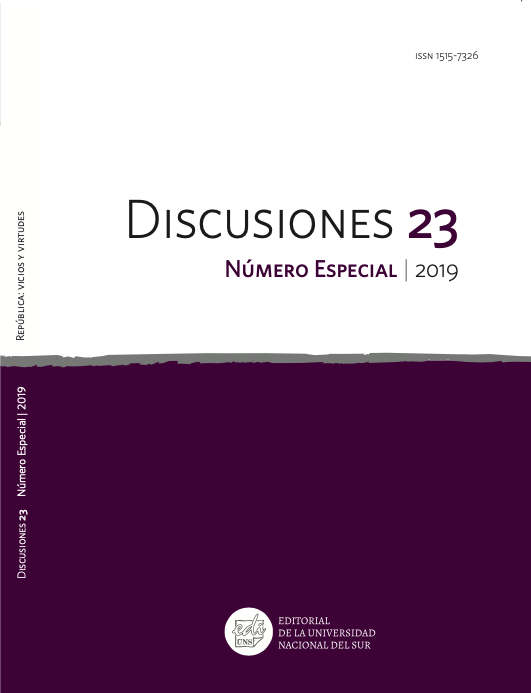The Rhetorical Requirement in utramque partem and the Topic of Skepticism. Some Reflections About Public Reasons by Andrés Rosler
DOI:
https://doi.org/10.52292/j.dsc.2019.2218Keywords:
Debate, In utramque partem requirement, Weak and strong skepticism, PoliticsAbstract
Considering Andrés Rosler’s book, Public Reasons, in this paper I attempt to focus on the very nature of political debate about the model of the classical Roman republic. In order to accomplish this goal, I recon- struct which were the historical-philosophical bases that this debate had in Cicero’s reflections. I argue that the rhetorical requirement in utramque partem was linked to the ancient weak skepticism of academics Arcesilau s and Carneades. Subsequently, I hold that this type of skepticism mutated towards a strong type in the work of Pyrrho and Sextus Empiricus. In the next step, I try to show the connections of this kind of skepticism with contemporary political and moral theory. Moreover, in the following lines, I attempt to explain what I call a political skepticism. But, changing the professorial style of my paper, I present contemporary examples of Argentine politics in order to identify what I call skeptical matrix scenarios. One of the theses that I want to defend is that the indefinite epoché is impossible, as well as full ataraxia, both are problematic to admit in a field, such as the political, directed to the resolution of problems.
Downloads
Published
How to Cite
Issue
Section
License
Discusiones does not withhold rights of reproduction or copyright. Consequently, authors may share the final versions of publications.


